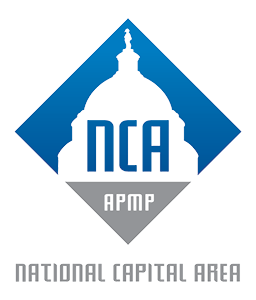Working from home and social distancing present obvious obstacles to conducting in-person proposal reviews during the ongoing public health crisis. While conducting virtual proposal reviews was a common practice prior to the pandemic, today’s remote workplace introduces challenges that proposal managers must address to conduct effective reviews. Whether you’re conducting virtual proposal reviews for the first time or you’re planning your initial review in the “new normal” virtual workplace, this article provides 10 tips to optimize review value.
- Perform extensive planning and preparation for the review. Your next proposal review must include novel best practices to accommodate virtual workers and environments. In your planning, define any new processes needed to achieve effective review results. Anticipate potential issues with virtual reviews unique to your organization and allow additional preparation time to resolve those issues so they don’t surface during your review.

- Identify review team members in advance. Once you have established milestones for proposal reviews, identify reviewers as much ahead of time as possible. This allows them to become familiar with the review tools and materials, increasing their effectiveness. Contact each reviewer to confirm their availability and assess their strengths to support the review. This assessment should include their experience as a proposal reviewer, familiarity with the opportunity / bid and proficiency with your software tools and IT environment.
- Assign review team roles. Once you have identified the review team members and assessed their experience, consider assigning review roles aligned with each reviewer’s strengths. Referred to as sub-reviews in the APMP Body of Knowledge (BOK), these reviewer roles help to focus review efforts on specific aspects of the proposal, including:
-
- Compliance;
- Quality;
- Highlighting of win themes;
- Clarity of offer;
- Consistency between volumes or major proposal sections;
- Effectiveness of graphics and action captions;
- Customer focus;
- Persuasiveness; and
- Proposal score based on customer evaluation criteria and rating methodology.
- Establish and test on-line access to the review library. Working from home on an extended basis has tested our IT infrastructures, causing us to make adjustments to our work environment for optimal productivity. When preparing for virtual proposal reviews, be prepared to make further adjustments to ensure the required systems, software, and tools are operational and accessible to all reviewers, particularly external review team members. Conduct tests of your document management and storage systems and reviewers’ client software prior to the review. Whether your proposal management environment is managed on-premise or through cloud-based services, make sure IT support is available for troubleshooting prior to and during the scheduled review. To simplify access, set up dedicated review libraries for central storage of review materials including RFP documents, opportunity/capture plans, compliance checklists, review templates and proposal products.
- Use standard review templates. To guide reviewers’ comments and obtain constructive feedback, use standard comment forms and debrief templates. Provide access to published quality standards and checklists to standardize the review process for increased efficiency.
- Provide training to reviewers. Based on your assessment of review team members’ experience and knowledge, identify which reviewers could benefit from training. By taking the time to educate them on the bid and provide tailored review guidance, you will achieve higher-quality review results and valuable reviewer comments.
- Provide clear instructions prior to the review. Training inexperienced reviewers will increase their effectiveness, but even the most experienced reviewers need detailed instructions on how to provide the comments needed to improve your proposal. If you are not getting adequate contributions from your reviewers, it may be because you are not providing clear guidance for the review process or expectations for review feedback. Providing instructions prior to the review in-brief provides reviewers with an opportunity to ask questions and obtain clear direction.
- Conduct effective review in-briefings and debriefings. Effective in-briefs explain the review purpose, reiterate your expectations for proposal feedback, and set review deadlines. Debriefs set the tone for review recovery and summarize the review findings to verify the progress of the proposal development effort. Use the in-brief and debrief templates available in the APMP BOK to develop the most effective review briefings.

- Allow sufficient time for reviewers to complete assignments. For a typical proposal review, it’s important to allocate enough time for review of the assigned proposal volume or section and for annotation of comments and feedback. Applying industry metrics such as 40 pages/day (or 5 pages/hour) for reviewing new content and 80 pages/day (or 10 pages/hour) for content with extensive boilerplate is a good method for planning review time. However, keep in mind you are not conducting a “typical” proposal review. In the “new normal” virtual workplace, allow additional time for reviewers who are challenged with distractions caused by working from home.
- Conduct constructive review recovery activities. When analyzing and prioritizing review feedback as part of your recovery action plan, remember that working remotely introduces challenges with communication. Facilitate communication between proposal reviewers and writers so that review comments are clarified as needed and follow up with writers to track incorporation of the highest priority review comments.
By following these tips for effective and efficient virtual proposal reviews, you can obtain valuable feedback to help develop compliant, compelling, winning proposals.



